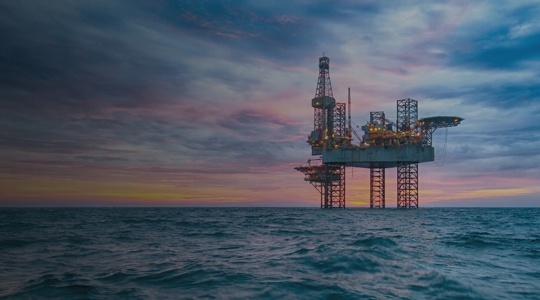COVID-19 Cases Aboard Enterprise Offshore Platforms & Others
Offshore workers have been in dire straits since the beginning of the coronavirus epidemic that has racked the globe. The first COVID-19 case aboard a drilling rig was discovered in March aboard a rig in the North Sea. Within weeks, there were over two dozen cases in the Gulf of Mexico alone, although some companies have declined to share how many crew members have tested positive for COVID-19, so we may never know the full figures.
The problem is two-fold.
One, offshore rigs are almost perfect conditions for a virus to spread. There are limited medical supplies and facilities, no one is able to get to shore efficiently, and everyone lives in cramped quarters. Handrails alone might be responsible for crews spreading coronavirus to each other, according to one expert.
Two, drilling companies have been given the authority by the federal government to set their own safety regulations. As a result, the response to coronavirus has varied wildly from company to company. One company decided to keep all sick workers at home and have all healthy workers stay on rigs for an extra week—a 21-day shift instead of a 14-day shift. Some companies are advocating the suspension of the Jones Act, one of the few laws protecting offshore workers from negligence.
Why Could a Jones Act Suspension Harm Workers?
The Jones Act, also known as the Merchant Marine Act of 1920, has been keeping offshore workers safe for decades. Besides protecting the American maritime industry, it keeps workers safe by giving them the ability to hold their employers accountable for negligence. Without the Jones Act, workers are subject to dealing with the consequences of preventable injuries alone.
As mentioned above, the federal government has given offshore companies the freedom to manage their COVID-19 response. For some offshore workers, this has resulted in longer hours and the increased likelihood of accidents. If the wrong parts of the Jones Act are suspended, employees will be at the mercy of the safety conditions their employers create during times of uncertainty and extreme cost cutting. In other words: workers will pay the steepest price for their employers' unsafe practices.
Enterprise Drilling Offshore & Other Companies Are Responsible for Workers
“It all depends where you’re working. If you work for a good company, they look after you. If you don’t, you’re on your own.” — Billy Fults, assistant driller in the Gulf of Mexico
Here’s the truth: when you’re at sea, your company is responsible for your safety and well-being. If your company’s safety regulations failed to keep you safe from COVID-19—or worse, actively gave you coronavirus—then you deserve compensation for your medical costs, lost wages, and other damages. Our team has been investigating these cases, fighting to get our clients the resources they need to fully recover while ensuring this doesn’t happen to any other worker.
The Enterprise platform rig lawyers at Arnold & Itkin have won billions of dollars in verdicts and settlements for our clients, including hundreds of results worth $1 million or more and dozens worth $10 million or more. We’ve won record-setting results in cases nationwide and in every major offshore oilfield in U.S. waters (and beyond). In 2010, we represented more members of the Deepwater Horizon than any firm in the country, and our case history includes the largest settlement ever won for a man killed offshore.
We take no fee unless we win your case. There’s no risk to calling us, so call (888) 493-1629 today!
